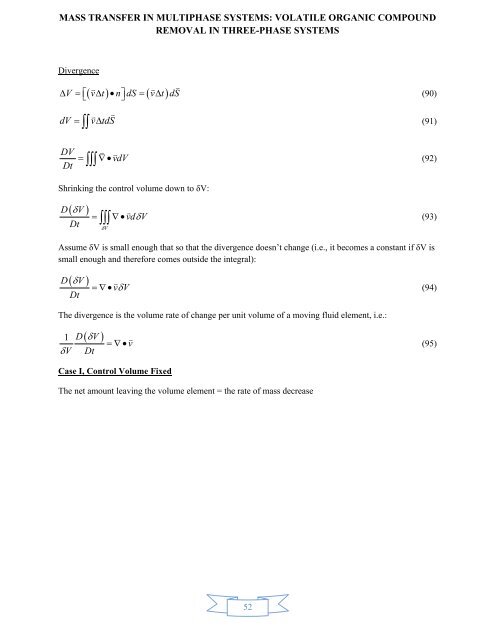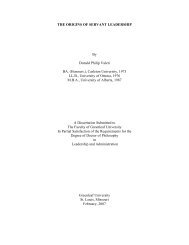mass transfer in multiphase systems - Greenleaf University
mass transfer in multiphase systems - Greenleaf University
mass transfer in multiphase systems - Greenleaf University
You also want an ePaper? Increase the reach of your titles
YUMPU automatically turns print PDFs into web optimized ePapers that Google loves.
MASS TRANSFER IN MULTIPHASE SYSTEMS: VOLATILE ORGANIC COMPOUND<br />
REMOVAL IN THREE-PHASE SYSTEMS<br />
Divergence<br />
<br />
<br />
V vtndS vtdS<br />
dV <br />
<br />
<br />
vtdS<br />
(90)<br />
(91)<br />
DV<br />
Dt<br />
<br />
<br />
<br />
vdV<br />
(92)<br />
Shr<strong>in</strong>k<strong>in</strong>g the control volume down to δV:<br />
D<br />
<br />
V<br />
Dt<br />
<br />
<br />
<br />
V<br />
<br />
vdV<br />
(93)<br />
Assume δV is small enough that so that the divergence doesn’t change (i.e., it becomes a constant if δV is<br />
small enough and therefore comes outside the <strong>in</strong>tegral):<br />
D<br />
<br />
V<br />
Dt<br />
<br />
v V<br />
(94)<br />
The divergence is the volume rate of change per unit volume of a mov<strong>in</strong>g fluid element, i.e.:<br />
<br />
1 D V<br />
V<br />
Dt<br />
<br />
v<br />
(95)<br />
Case I, Control Volume Fixed<br />
The net amount leav<strong>in</strong>g the volume element = the rate of <strong>mass</strong> decrease<br />
52



